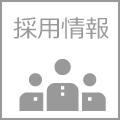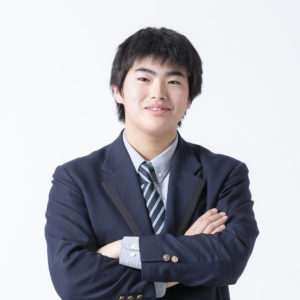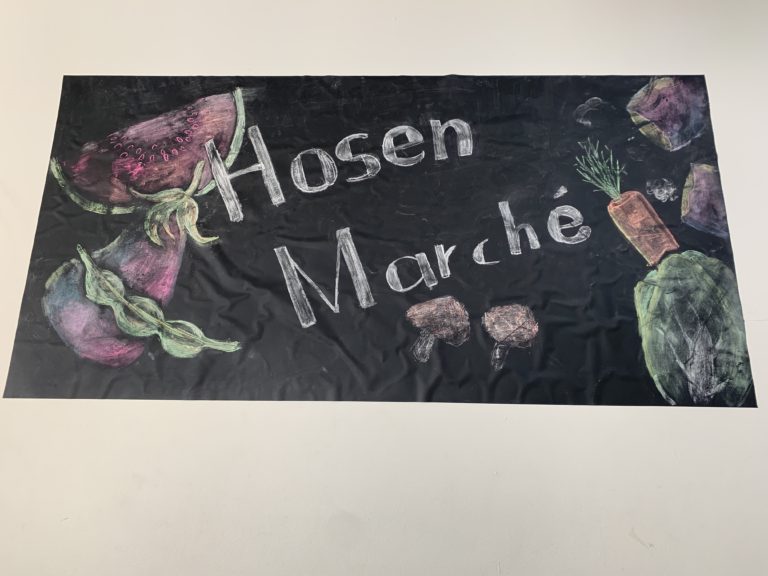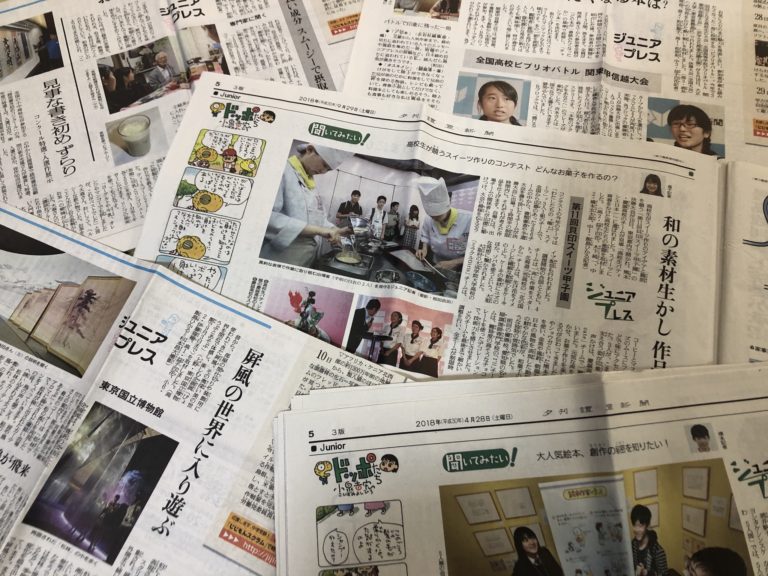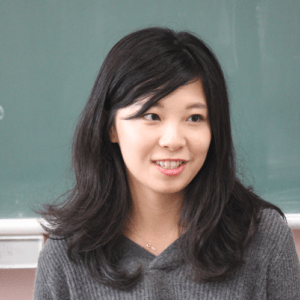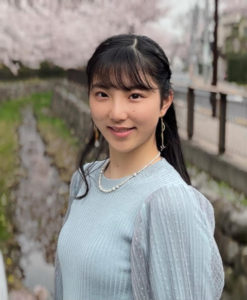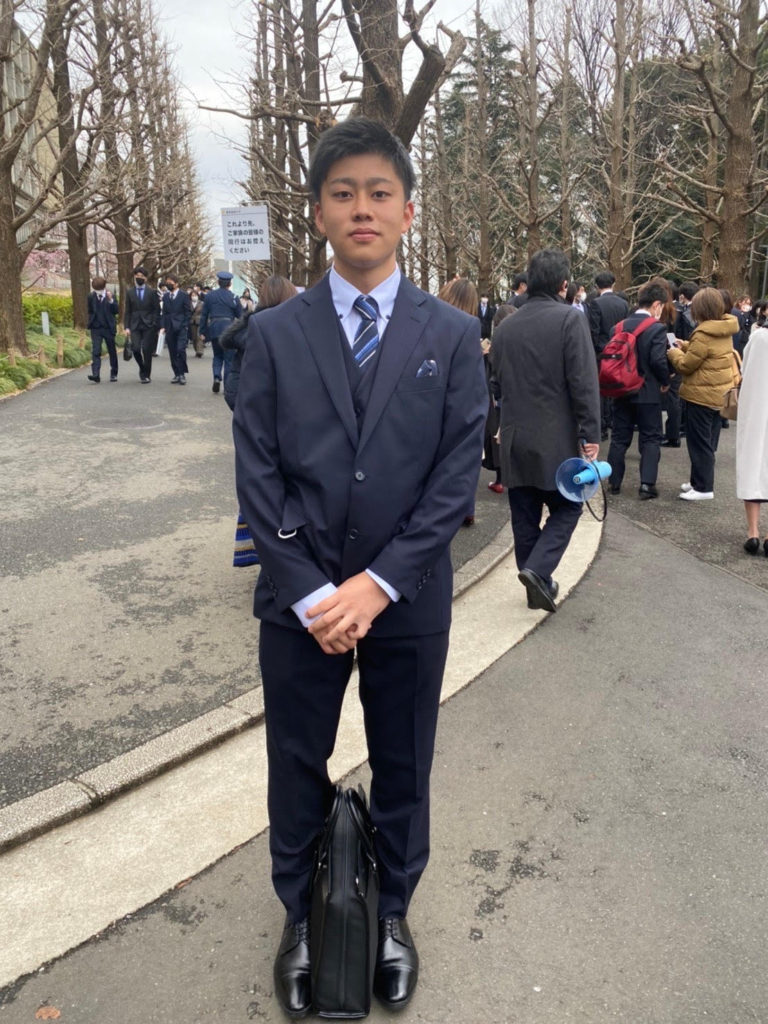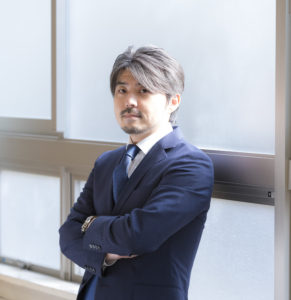A Greeting from the Principal
 Haruhide Fuji Principal
Haruhide Fuji PrincipalWelcome to RISU-INTER!
Celebrating its 15th anniversary, RISU-INTER has set out a new concept for the next generation. It is an “intellectual and open square” where the students are players, the teachers are coaches, the parents are supporters, and the alumni are big brothers and sisters who take care of the current students. These groups contribute to the students in their respective roles in our school, where we have a student-first policy. It is essential to have high self-esteem. Japanese children often have low self-esteem, and I believe this is a severe problem. We encourage our students to accept themselves as they are and to know that they are doing well and have potential, even if they have weak points. If they have self-esteem, they can keep making an effort to beat their personal best when they confront challenges.
How can we foster their self-esteem? They need the experience of exploring their ambitions and being recognized by others. By accumulating these experiences, they can boost their self-esteem and, at the same time, be kind to others.
It must be the role of the school to provide a place for such a dynamic experience. From that perspective, on the 10th anniversary of the founding of this school, we created the subject named “RISU-INTER.” I invite you to come to our school to see and experience the unique and empowering classes where our students are always excited and taking initiative.
Our students have the courage to take on challenges without fail, supported by our teachers as their coaches. More than ever, we want to prepare opportunities and settings for students to play an active role in our school.
We look forward to your success in our school.
What “RISU-INTER” Means

“RISU-INTER” = “an intellectual and open square.”
In this square, the students are players. The teachers are coaches. Parents are supporters. The alumni are big brothers and sisters who take care of our current students. These groups contribute to the students in their respective roles in our school as a student-first square.?
RISU-INTER aims to be the place where students enjoy a student-first, intellectual, and open square.?
RISU means logical thinking. INTER is an abbreviation for interaction. We include communication skills and presentation skills in our definition of this word.?
We hope that our students will not only connect with others but will also connect others with others using these skills.
Welcome to RISU-INTER!

Our students acquire logical thinking skills and make their thoughts and opinions resonate with many people.
Having logical thinking skills, communication skills, and presentation skills is the 21st century world-standard. These skills are necessary to study at university and to contribute to society. RISU-INTER, as an intellectual and open square, aims to help students develop these three skills supported by teachers, parents, and alumni.?
Logical Thinking
Students discover problems, make hypotheses, and validate them. If their hypotheses don’t work, they repeat the approach in a different way or perspective.
Logical thinking is the ability students acquire through this process.
Communication Skills
Communication skills are the ability to accept others’ opinions, listen, and convey thoughts and ideas in various ways.
Presentation Skills
Presentation skills can make one’s opinions, ideas, and research findings resonate with people by improving the abilities to persuade others, structure sentences, express opinions, and analyze arguments.
Global Course (a course for students who grew up overseas)
Students in the global course take English classes separately from the other students, but take other subjects with them.
5 hours a week, English classes are taught in English by a native speaker?
2 hours a week, English is taught by a Japanese instructor
Preparation for various certification tests
Global Education
Study-abroad program in Asia for junior high school students (third grade):

In this program, students travel through other Asian societies (Singapore and Malaysia), where they can learn about themselves.
Students walk through the streets of Singapore, where ethnic groups from different cultural backgrounds coexist, and experience the fusion of various cultures. They stay in Malaysia and visit a village where they wear traditional dress and eat home cooking. Getting to know Asian cultures, including those of Japan, will help them prepare for studying in the U.S. when they are second-year high school students.
Travel Itinerary
| Day 1 | Travel by air to Singapore |
| Day 2 |
Visit a Japanese company ???? Bus ride Interact with students from the University of Singapore. One of the university students attends each group of Hosen Gakuen and guides them around the city. |
| Day 3 |
Move to Malaysia Interact with students from a Malaysian school. Visit Kampung Village (Lunch and Cultural Exchange) ???? Bus ride to Singapore Night cruise Experience Wonder Full at Marina Bay Sands |
| Day 4 |
Singapore City Walk (in groups) Visit an Islamic Mosque, a Hindu Temple, and Chinatown Singapore Flyer Ride |
| Day5 | Travel by Air to Haneda airport |
Studying Abroad (Voluntary Participation)

New Zealand?
We have long-term (one-year) and short-term (two-week) programs for studying abroad in New Zealand. In the long-term program, which we joined in 2015, students study at a local school while staying with a host family. When they return, they have developed new values and have gained new perspectives. In the short-term program, students study at a local school while staying with a host family, and, at the end of the trip, they move to a farmer’s household and experience a farmer’s life.

Malta
Malta is a small Mediterranean island nation south of Sicily, Italy. Because it was historically under British control, the official language is English. In the summer, students worldwide, such as from Russia, Germany, Italy, and Spain, come to study English. Students of Hosen Gakuen learn English with foreign people around the same age while staying at a hotel with almost no other Japanese people. Studying abroad in Malta is a two-week program that offers an experience of the diversity of the world.

Domestic Language training at Hosen Gakuen
Students experience a program carried out by Cebu Islanders at Hosen Gakuen!?
A Stage-Based Approach to Support Students
For six years between the ages of 13 and 18, when mental ability and body grow significantly, education according to the stage of development is essential. Between the 1st and 2nd year is the period when students acquire basic scholastic proficiency. Students acquire ideal learning habits and lifestyles and develop the ability to act as members of both teams and of RISU-INTER. Between the 3rd and 4th year is the period when they refine their thought-processes. Through verification and consideration, they form their own opinions and broaden their perspective on society. Between the 5th and 6th year is the period when they try to achieve self-realization. Students do not rely on adults but think and act independently, set their agenda, and achieve their goals. With support in outlined stages, students contemplate their future and engage in their own paths without being overburdened.

Guidance in School Courses
Education according to the stage of development
Students make a hypothesis and verify it. If it doesn’t work, they try the other way. They cultivate attitudes and logical thinking skills in daily classes.

The number of class hours in the five major subjects is 27 hours a week, which is much longer than most schools in the Tokyo metropolitan area.
The number of classes in five major subjects such as English, mathematics, Japanese, science, and society is 27 hours per week. Among private junior high schools in the Tokyo metropolitan area, we have secured many classes. This is not to teach students in advance what they learn in high school, but to ensure that everyone progresses. We limit the number of students per class to 35 in principle and take care of each student. We ensure that the students understand “what assignment,” “when,” “what they should use,” and “how,” and encourage them to work on it. We grasp the student’s learning situation in detail and encourage them to accumulate daily learning, develop the basics, and create academic ability on a solid foundation.

Follow
We set up English and math “Follow” hours, one hour for each a week, to conduct personal coaching according to each student’s level of understanding for the 1st year students. Students make it their weekly routine to “understand what students didn’t understand rather than leaving it as unknown” and build a solid knowledge foundation.

Studying 5 major subjects at students’ own pace
The number of classes in the third year of junior high school is about 1,000 hours more than the government course guideline. It is to ensure that students develop the academic ability of the five major subjects required to take the examination at a national and public university. In addition, by conducting classes to develop logical thinking, presentation skills, and communication skills, students will acquire “an authentic academic ability.”
The purpose and approach of school course
Being an ever-evolving educator is our philosophy.
We believe that our education is always to challenge our personal best without fear of failure.

English
We conduct “4skills +α” classes based on “the three elements of academic ability” and have students enjoy learning English.
1.We teach basic knowledge and skills.
2.We develop the thinking, judgment, and expressive ability necessary to solve problems by utilizing knowledge and skills.
3.We have students do “collaborative work” that actively tackles learning. We aim to develop students who can understand the appeal of English as an academic through classes and realize that they have developed the ability to express themselves in English.
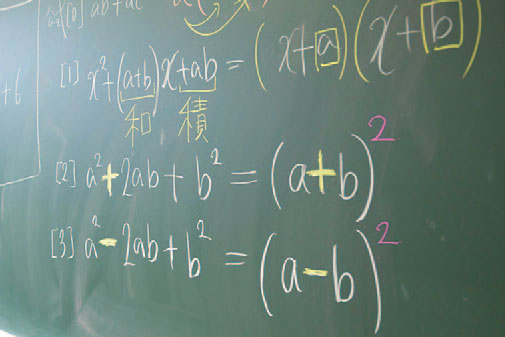
Mathematics
We develop students who value questioning why this happens.
We teach algebra and geometry separately using a teaching material called “system mathematics.” In addition to 5 classes per week (6 classes per week for 2nd and 3rd year), we arrange the Follow class for the 1st year students once a week to convey the joy of mathematics. We encourage the students to constantly think about why this happens rather than listen to classes passively through math classes.

Japanese
We encourage the students to build a foundation to support communication and logical thinking.
By implementing active learning from junior high school, students will improve their presentation skills and acquire logical thinking for themselves. We aim to deepen Japanese skills as the basis of all subjects.

Science
We raise the great scientists for the future.
In addition to “physical geography” and “chemical biology,” we provide the class of “science experiments” where we conduct various experimental practices. By each class working closely together, the students acquire persistence to solve problems, expressiveness to convey learning to others, and attitude to learn by themselves.

Society
We develop an attitude of being interested in, examining, and thinking about the various events that are happening today.
The 1st year learn the geography field, the 2nd year learn the history field, and the 3rd year learn the history field and the civil field. Also, from the 1st year, the students study, summarize, and make a presentation using newspapers. Through such learning engagements, the students develop an attitude of thinking “why.”
Numbers of students who got accepted to top-universities by year

We beat a record number of students who got accepted to Waseda, Keio, Sophia, International Christian University, and Tokyo University of Science last year.
2 students got accepted to Tokyo institute of Technology directly on graduation from Hosen Gakuen.?
2 students got accepted to National medical school directly on graduation from Hosen Gakuen.?
School History
1928 Nakano Women’s High School is founded
1945 The school is turned into independent administrative entities
2006 Childcare course for the women’s course of high school is established
2007 Hosen Gakuen Junior High School co-ed RISU-INTER is established
2008 Marked the 80th anniversary
2015 Childcare course for the women’s course of high school celebrates its 10th Anniversary
2016 Hosen Gakuen Junior High and High School co-ed RISU-INTER celebrates its 10th anniversary
Applicant Guidelines
If you have any questions, please contact us through the page below.
在校生の声
保護者の声
卒業5生の声
教員の声
 Return to Top ▲
Return to Top ▲


